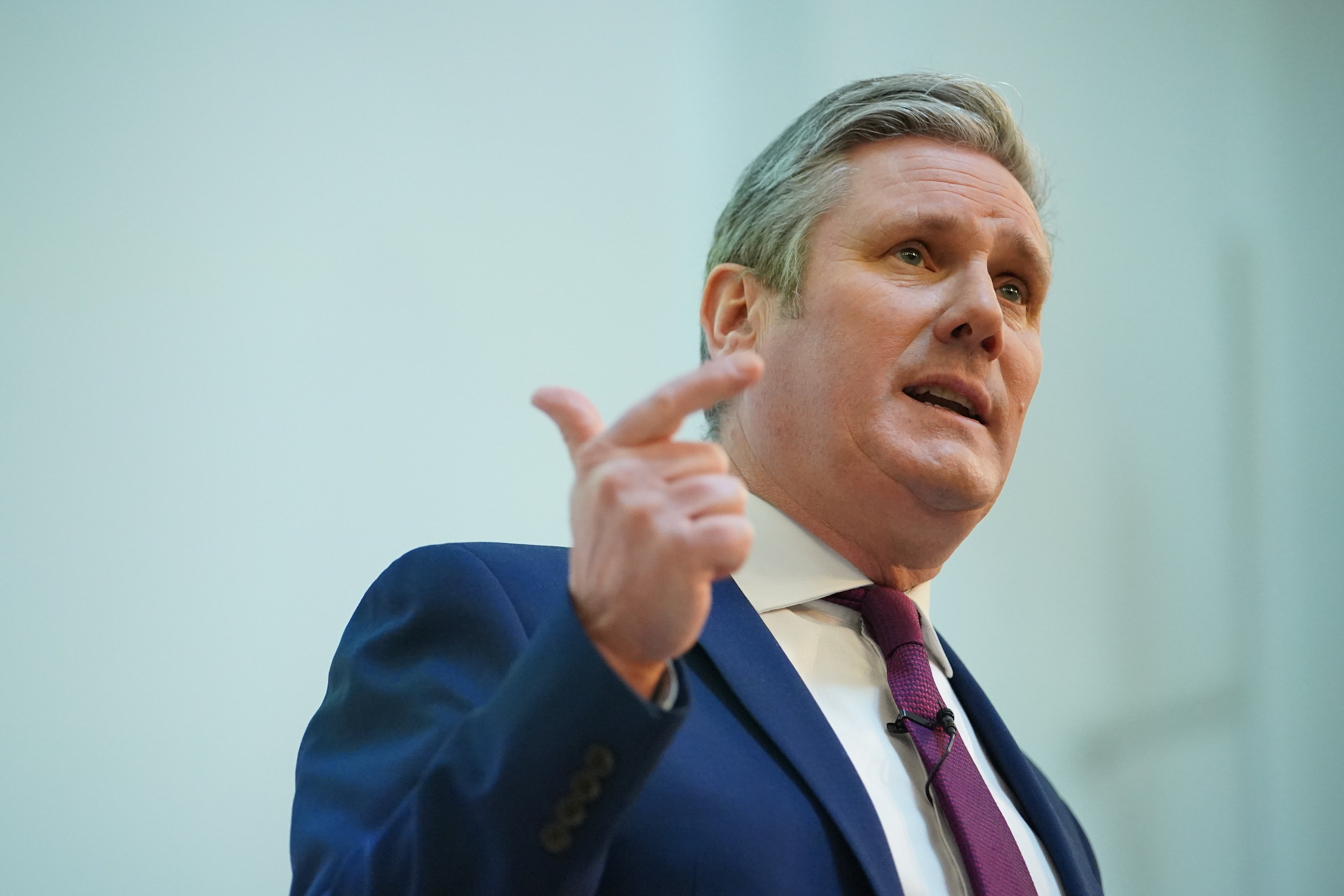Starmer promises to harness the ‘white heat’ of technological change
The Labour leader will evoke the spirit of Harold Wilson as he sets out plans to build a better economy.

Your support helps us to tell the story
From reproductive rights to climate change to Big Tech, The Independent is on the ground when the story is developing. Whether it's investigating the financials of Elon Musk's pro-Trump PAC or producing our latest documentary, 'The A Word', which shines a light on the American women fighting for reproductive rights, we know how important it is to parse out the facts from the messaging.
At such a critical moment in US history, we need reporters on the ground. Your donation allows us to keep sending journalists to speak to both sides of the story.
The Independent is trusted by Americans across the entire political spectrum. And unlike many other quality news outlets, we choose not to lock Americans out of our reporting and analysis with paywalls. We believe quality journalism should be available to everyone, paid for by those who can afford it.
Your support makes all the difference.A Labour government would ensure the “white heat” of a new technological revolution delivers prosperity for all, Sir Keir Starmer will promise.
Sir Keir will evoke one of the most famous speeches of an earlier Labour leader – Harold Wilson – as he sets out his plans to build a “new economy of security”.
Mr Wilson was seeking to become the first Labour prime minister for more than a decade when in 1963 he pledged to harness “the white heat of technological change”.
Speaking in Mr Wilson’s home town of Huddersfield in West Yorkshire, Sir Keir will say that after 12 years of a Conservative government, it will fall to Labour to deal with the next generation of change.
“Our country and our economy are entirely different now, but we too are going through the white heat,” he is expected to say.
“We face our own revolutions in technology and industry, and it will fall to the next Labour government to shape that change so it works for all.”
It marks the latest stage of his effort to restore the party’s economic credibility in the eyes of voters following the controversy over Jeremy Corbyn’s plans.
Sir Keir will declare his determination to end the “economic fatalism” of the Tories, who he will accuse of lacking a clear plan for business.
“Britain cannot rise to the great challenges of the day without the innovation of business,” he will say.
“A political party without a clear plan for making sure businesses are successful and growing … which doesn’t want them to do well and make a profit … has no hope of being a successful government.”
He will continue the theme set out by shadow chancellor Rachel Reeves that the Conservatives were “the party of high tax because they are the party of low growth”.
We will build a new economy of security, where stable employment will be the bedrock of a better future for the next generation
Sir Keir will say that in more than a decade of Conservative government, the economy had grown “far slower” than it did under the last Labour government.
He will argue that if the Tories had matched Labour’s record on growth, people would have enjoyed higher incomes while an additional £30 billion a year would have been available for public services without raising taxes.
For all the “small-state rhetoric” from the Conservatives, he will say that Chancellor Rishi Sunak has already introduced 15 tax rises, increasing taxes “more than any other chancellor in half a century”.
In contrast, he will say that a Labour government will be committed to building a better, more prosperous future for all.
“We will build a new economy of security, where stable employment will be the bedrock of a better future for the next generation,” he will say.
“We will build an economy of prosperity, in which the places that once powered Britain flourish again. We will build a new economy of respect, where the contribution of every worker and employee is given its due.”